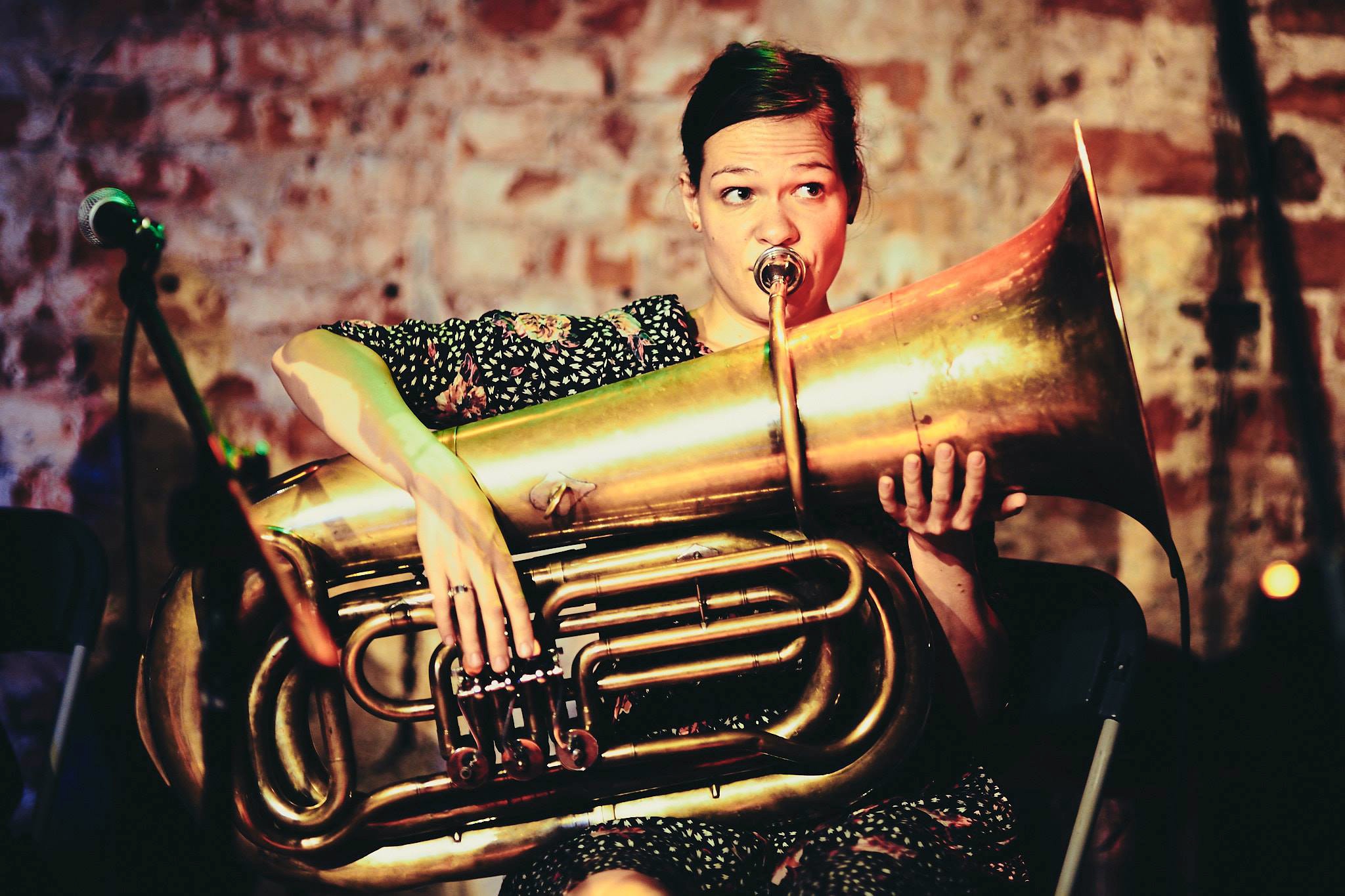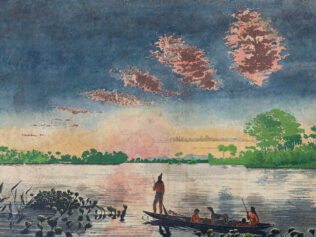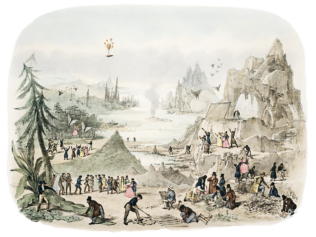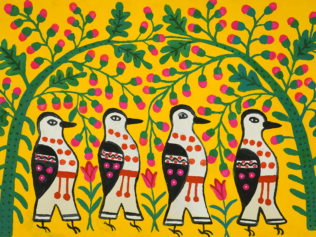
Folk songs found in the Polesia region are scattered fragments of a much greater female epic. They tell stories of girls left alone with newborn children, about wives whose husbands don’t let them visit their families, about a longing for home, and evil mothers-in-law who keep young wives from going back. Maniucha Bikont talks with Agata Trzebuchowska about her travels collecting these traditional songs.
Agata Trzebuchowska: What was your first encounter with traditional music?
Maniucha Bikont: I was a child. My father’s friends paid us a visit. They’d met when working with Grotowski [a Polish theatre director – ed. note]. I listened to their powerful voices in absolute awe. I dreamt of being able to sing like them. Then, year after year, music became more and more important to me. I travelled to Ukraine, which was a breakthrough. I will never forget that day-long journey along country roads, through woods and narrow ravines, rutted roads extending endlessly, potholes and that never-ending emptiness. People came out of their homes to greet us, they were so thin and fragile I was scared of hugging them. Yet when they started to sing, an energy filled their bodies; the sort of energy many people who go clubbing in cities could do with. Songs that to me seemed difficult and abstract flowed out of these folks organically, without any effort. I was totally thrilled!
You came back transformed.
I wanted to do nothing else. For years, I travelled across our eastern border, collecting folk songs. After coming home, I would listen to the recordings over and over again, humming the tunes, learning the lyrics, learning Ukrainian. I pasted up song lines all over my home. I came to realize that my commute between Woodrow Wilson Square and Warsaw city centre lasts exactly two songs. Or that a ski lift ride was enough to sing the longest song I knew. Pages with lyrics would fall out of my pockets, my gloves.
For the first few years of my travels, I would only record the songs. I turned on the voice recorder when they started singing, and turned it off when they stopped. In time, I became interested in how the singers commented upon their songs, their introductions. Then I became interested in everything, tried to record it all. I was also motivated by the fact that these songs had not been written down by anyone. Every generation learns them off by heart. Many have been lost, and others are only known to the oldest residents.
What about the young people? Have they escaped to the cities?
In the village of Komory, near the Belarusian border, the youngest resident is over 70. This is a village that is dying completely. There’s more storks there than people. There is a travelling salesman who goes around the district delivering food, and he is their only contact with the outside world. But there are villages buzzing with kids and teenagers; these are followers of new religious movements. They have their own songs, nothing to do with traditions. The biggest challenge when I make my trips is to get the old singers to recall all the tunes they know. That is why I constantly go back to the same villages, the same people. Trying to get them to remember, and every time I do, I come back with new recordings.
Do you ever find that songs recorded earlier sound completely different the next time you record them?
Constantly. It’s really interesting when we take singers to perform in Warsaw or Kiev. When we rehearse before a show, it usually turns out that, apart from the lyrics, the song they sing has nothing to do with the one she had taught me earlier. I ask then if it shouldn’t sound different. I hum the melody, and the singer then tells me: that is how you sing solo, but when you sing a duet it sounds completely different.
Are these folk songs accompanied by instruments?
In the Western Ukrainian part of Polesia, which is where I have spent most of my recent visits, people have almost completely stopped playing instruments. Sometimes you can find men who play a simple pipe. The fiddle was also popular, once upon a time, but that was in the last century. You could probably explain it in many ways – terrible poverty must play a part. Buying an instrument used to mean selling a cow for the money. This was a huge expense for families, very few could afford such a luxury.
People talk about ‘white singing’ or the ‘white voice’. Does anything like that exist?
This phrase is used to describe a folk song that people tend to think of as being based on shouting, but this is an oversimplification. The more I travel around the countryside, the more singers I meet, the more I am convinced that there is no such thing as a ‘white voice’. In every region, in every village, there is a totally different style of singing. The same person can perform a song in a higher register, another time in a lower tone, depending on the time of day or year. There are songs for casting nature spells (these are actually sung in a voice which carries), but there is a whole spectrum of lyrical song that can sound like laments or a delicate whisper. Traditional music is very complex and diverse.
What do you find most thrilling about it?
The power of the voice and the singing technique, which uses minimal effort in order to achieve an amazing sound. I was always fascinated by how calm the faces of the singers are, compared with the intense sound that completely fills the singing spaces. Their singing lacks dynamic variation (increases and decreases in volume). Singers achieve a certain sound and sustain it with even intensity until the end. The line between song and speech is fluid, the tone of voice is not polished, which makes this sort of sound more personal. I also love singing along to dances. The best kind is during intimate, mazurka events. We used to organize dance parties at home. We could barely fit 10 pairs of dancers, but because of this we could play live without sound equipment, and it creates a completely different sound. It’s an incredible feeling when it is just the raw voice that moves people to dance. The dancers sing along with the singers, tapping their feet, amplifying the sound, so that the dancing seems like it will never end. Similar parties now take place in Warsaw, in one of the Finnish houses in the Jazdów district, in a place called the Embassy of Traditional Music.
Although you’ve visited dozens of villages, the songs that you chose for the album Oj Borom, Borom… only come from one place.
From Kurczyce, near Zhytomyr. And from just the one singer, actually. The poetry of those songs was especially moving for me. They are full of lyricism, nostalgia, things left unsaid. There is more melancholy in them than the loud tragic effect you often find in the Ukrainian songs I used to record.
What are they about?
Mostly about how hard women’s lives are. About a girl left alone with a newborn child. About a wife whose husband won’t let her see her family, about a bad mother-in-law who doesn’t appreciate the work of others, and about how there is no one to feel sympathy for them. In most songs, the woman longs to be “compensated”. This is a very popular word in those parts. There are also songs about violence: “As pillows start to fly, the girl jumps out the window. He asks her: Why do you run? I am only throwing pillows. She replies: If I didn’t know what you are like and what comes next, I would have been in a grave a long time ago.” Or about a girl who came home later than promised, and asked her husband not to beat her at night, but wait until the next day, after he has checked with others that she was with her family all along.
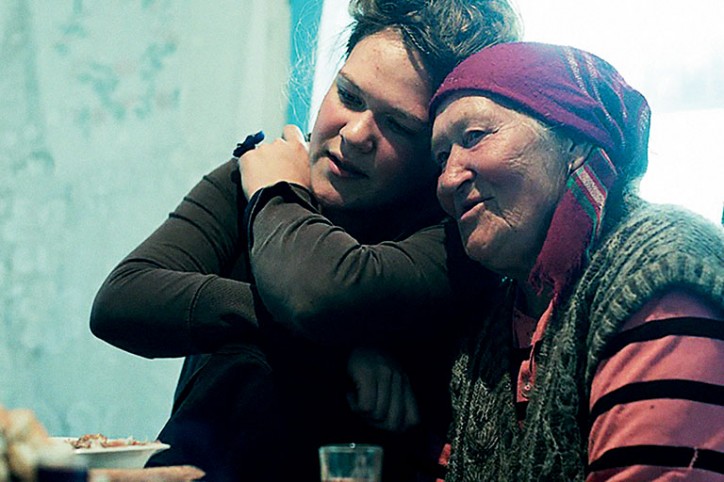
Very powerful!
True stories – that is how women comment upon their songs. “Oh, real life songs!” Singing often involves telling stories about people’s own lives, which for the women in those parts of the world are particularly hard. The work never ends: harvests, plucking feathers for down, sewing, seeds, peas. Then there is the husband and kids, and there are the beatings and the drinking, sometimes not even death brings peace. I’ve often heard songs about the souls of dead husbands who visit women at night. The hard and thankless lives those women lead is often reflected in their songs.
Have you been able to discover the original sources of their texts?
Every time I ask, the women singing say that it was their ancestors who composed the lyrics. They don’t mean specific people, more a mythical sort of ancestry. They have the impression that the songs have been around forever and that is why they shouldn’t be altered. When two friends want to sing together, but cannot agree on the version to sing, one might say to the other that she is “making things up” and this is a serious insult.
For me, the words were originally of secondary importance. I was more interested in the sound that I was trying to imitate. But the people I met couldn’t understand that at all. I was visiting a certain singer and asked her to sing a song, the words to which I couldn’t recall. I hummed a bit of the melody, but the woman had no idea what song I was on about. The music gave her no clue, only the words got her memories going. The same or similar texts can be found in different villages. I sometimes have the impression that the songs I collect are the scattered fragments of a vast female epic.
By collecting these old Ukrainian songs you give testimony to a vanishing world. Is this your cultural mission?
I don’t see it that way. I do it for myself. I like these people and I am moved by their music. I do of course realize that it is a world which is vanishing, and that is why I am so obsessed with capturing it all. Polesia is known as the living museum of Europe and, in fact, many of their farms have maintained their old character. The awareness that a certain era is coming to an end, a certain kind of culture, is something the older residents of that region are most aware of. They have no audiences within their own communities, and so anyone who is interested in listening can receive their legacy. It’s different in the highlands, where the folklore is thriving. The young learn to play instruments, they continue traditions. I don’t feel needed there. Highlanders are self-sufficient. People from the lowlands wait for years for the chance to sing to someone and tell them the story of their lives.
Do they ever sing just for themselves? Do they ever just ‘jam’ along together?
It happens that I meet women who sing with their friends from time to time, but this is now rare. I tend to meet people of advanced age; weak and sick. Their friends have often passed away and so they have no one to sing with. When I can serve them not only as a listener, but also as a companion, I feel the biggest sort of thrill.
You always talk about female singers. What about the men?
They are hard to find. Men tend to die younger, because of having worked hard in stressful jobs all their lives, but also unfortunately because of alcohol. Of course, there are exceptions. Some friends from Kiev discovered a village of male singers in Volhynia, Czornyj. This caused such a sensation in our community. We all now travel there to hear the melodies we know performed by male voices. We most often, however, encounter solitary women who have buried their husbands, and often sons. After a hard life, they finally have time to themselves. They no longer serve others, no one tells them what to do. If they want, they can invite guests in and sing for three days straight.
And all of them are so keen and trusting when it comes to guests?
In these end-of-the-world villages, the attitude to strangers is very different. Today in Poland, the roads are good enough to let you drive from every village to the nearest town within half an hour, where you can find a hotel. In Ukraine, you can’t get out of the villages that easily, and so the locals think it is their duty to take care of guests. They will take you in, feed you, no matter how poor they might be. They’ll open kegs full of lard, pickles, jams, homemade vodka. They will share all they have.
The record Oj Borom, Borom… was recorded with Ksawery Wójciński. The combination of the double bass and vocals is a rather unconventional idea. How did you come up with it?
Ksawery and I have a similar sensibility. I felt that the melodies from Kurczyca would be as moving for him as they were for me. First I sought out Ksawery – the double bass was part of the package. If he played the flute, I would have decided on that. Before I came across Ksawery, I performed in a group with other voices. The solo song seemed to me completely unattractive. I was much more fascinated by bringing my voice together with others. But it turned out that Ksawery’s double bass is so sensitive, that matching its sound is just as attractive as singing with other voices.
You play so many instruments yourself, it is impossible to count them all.
Jan Gaca, my favourite violinist from Przystałowice Małe, used to say: “As it is in your head, so it is in your fingertips”. Which means: when you have something that you really want to perform, nothing will get in the way. When I come across any sort of instrument, I intuitively sense how to get the best sound out of it. And yet, I don’t feel like I have mastered any sort of instrument. My ultimate instrument is my voice, and that is what I want to perfect.
Was your home also filled with music?
My father would bring home many instruments. He had a real ear for music and was the leader of many bands. He also hung around with many musicians. I was friends with them too, got into my first adventures in their company. I would go to concerts with my dad, listening to tapes in the car. My favourite was Watermelon Man by Herbie Hancock. There is a tune on that record that is based on pauses. Every time the music died down, we would look at each other, dad and I, waiting for the next hit. I remember a concert with a band called Pociąg Towarowy [Cargo Train]. Dad read out the Old English poem Beowulf. I sang the mother parts and played a soprano sax, but it still went down below my knees – I had to rest it on a chair, it was so big. I must have been eight years old. It was such an incredible experience. It was dark outside the windows, people all around. We played some improvised music, but there were prearranged moments when I had to join in. I can still remember the tension. Is it now? I have to admit that the musical adventures I experienced with my dad were so powerful, they dominate all my other childhood memories.
Your father, Piotr Bikont, was a one-man-band. He not only wrote and translated texts, but he also directed, played instruments and was a social activist. From what you say, he shared your passions. And your mother, Anna Bikont, was a journalist and writer; a committed academic. Were your life choices exotic to her?
Indeed, this wasn’t her sort of thing. When she was my age, during the times of KOR (Workers’ Defence Committee) and Solidarity, she was completely absorbed by the worker’s movement. You could say we share a fascination with a world which is completely separate from that we grew up in. She too is involved in ethnographic fieldwork, collecting Jewish-Polish testimonies, so villages are not places she is keen on. She decidedly doesn’t share my fascination.
Are you rebelling?
I would need years of psychotherapy to confidently answer this question. But there must be something in it. I was raised on stories about the Holocaust. In them, the world in which we live appears to be the worst of all possible worlds. I certainly feel a deep desire to counter this view. In my home, education was the most important thing. Not only as a guarantee of a safe and decent future, but also as a measure of our humanity. In this context, my quest for art, beauty and knowledge among uneducated people was a kind of rebellion.
During your musical journeys, do you ask the residents about their relations with Jews?
Almost always. This is for me important, but also a difficult moment. If I like a given singer, I often fear asking the question. I don’t want to encounter this other side of their character. Thankfully, in Polesia I have not come across any antisemitism. Probably because I mostly encountered women whose stories of the war were completely different. They talk with sadness and empathy about what happened to their Jewish neighbours. Everyone born in Polesia before World War II had some Jewish friends. They remember the names, the smell of matzah. Their stories allow us to piece together what Jewish life in those parts of the world used to be like. I also happened to visit places where Jews were not referred to enthusiastically. I was not keen to return to those places again.
Do you ever think of visiting Israel? Your sister Ola left right after her high school graduation and has lived there ever since.
I have been working with Israeli musicians for some years now. I perform with Assaf Talmudi from time to time in Israel, but I have no desire to move there. The same as with the United States, which my mother loves. I think she still hopes I will one day travel there and take up a post at some decent university. I can keep on doing all my Polish village stuff, but she’d prefer I did it in New York [laughs]. As a small girl, I travelled to many capital cities in the West, saw the best museums. But it is only when I started exploring alone, towards the East, that I felt I had found my own way.
How important is your Jewish identity to you?
It was with me from the very start. I went to a Jewish playschool. My mum would call Ola and I: “My cute little Jewish girls”. Many people around us chose that identity as something that determined their life choices. I didn’t feel such a need. Fine, I am Jewish, but what does it matter? Today, especially after giving birth to my son, this question is still alive in me. What part of that identity do I want to pass onto him and how?
Does your family have any Eastern roots?
It does, but this is something I only learned of recently. My grandparents on my father’s side came from Vilnius, and the grandfather on my mother’s side from Zolochiv, near Lviv. I was always angry whenever anyone said that singing these Eastern songs has to be in my genes. I don’t believe in any sort of genetic determinism, but I was always drawn towards the East. I feel connected with Ukraine, especially Kiev, where I studied for a year and made many close connections. Our microwave and drinks cabinet was at the Music Academy, where we would spend long evenings talking to our professors. The political and life aspirations meant that people had a need to be close to each other. In those days, I dreamt of moving to Russia. I have been to Moscow many times, tried to apply for their grants. But the war with Ukraine broke out and everything changed. The community of musicologists and ethnographers from Russia, Ukraine, Lithuania and Belarus which had until then worked closely together, fell apart.
Is there a place on this earth you would call your own?
MB: I always feel at home wherever I happen to be. I was always like that. When I was at playschool, I could not imagine life without it. I decided that once I grew up I would become a playschool teacher, so I would not have to say goodbye to it. Then I had the same thing with school and especially with our family home on Filtrowa Street, which I really loved. I could not imagine ever leaving it, but in time, one by one, everyone moved out and I was left there alone. Eventually, mum sold it and I had to find a new home. Now, I am living in Żoliborz, have a small child and some friends around me. Can you imagine a better place on this earth? I was never any good at dreaming of things I didn’t have. When someone asked me to make a wish, I could think of nothing to wish for. Maybe, like a child, I do not like changes. Or maybe I am simply happy.
Parts of this interview have been edited and condensed for clarity and brevity.
Translated by Marek Kazmierski


